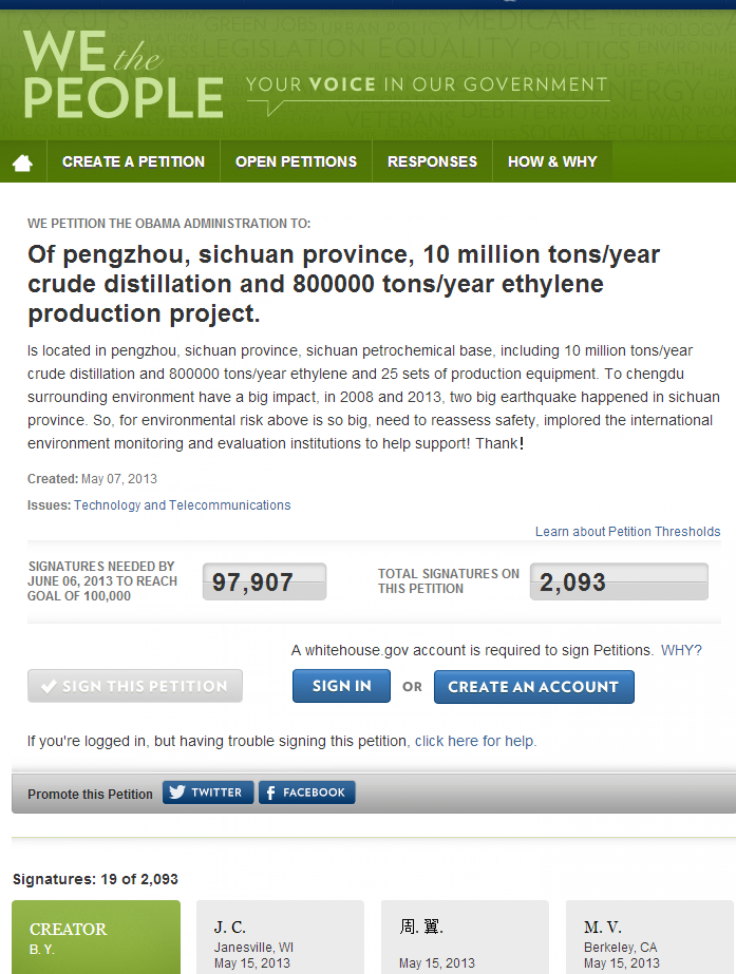Chinese Online Petition Site Launches and Crashes On The Same Day

China is now taking complaints, and there are many. In a move to give its 1.3 billion people a way to submit formal complaints -- similar to the White House petitions that have become a popular way to promote causes -- China’s State Bureau of Letters and Calls launched its own version of a petition website.
In theory, the new portal is a good idea. It's a direct alternative to White House petitions, which people in China have utilized to bring up issues but which generally never got reviewed, because of jursidiction. And it should be better than the local, in-person way: After exhausting all local official resources, those who still want to file formal complaints have to trek to China’s capital Beijing and submit their requests in person. But because of monetary or time constraints, many people can’t do that.
On Monday, citizens got an online option that avoids the trip to Beijing and makes it more affordable to file complaints. Having all paperwork filings online, officials say, will help them track progress as well.
But the digital transition didn’t go as hoped. According to state media, just hours after launching, the site crashed. “Sorry! Weibo brought too many people to the page,” Li Kaifu, CEO of Innovation Works, said. While the site was back up a few hours later, the initial failure to handle the capacity had many on China’s most popular social media platform mocking the new effort, asking how they could possibly handle the inevitable influx of complaints. In addition, experts believe that this will make it even easier for officials to ignore requests because they are no longer dealing with people in person.
“Their problems cannot be solved even through face-to-face dialogue, so I’m not optimistic about the function of the website, Yuan Yulai, a popular civil rights lawyer, said in the South China Morning Post. “Their problems would be much more easily fixed if the country had a legal system that could earn people’s trust.”
According to TechInAsia.com, the issue may be that China’s servers can’t handle the volume of complaints. This isn’t the first time Chinese government bodies have launched citizen-driven reporting websites, nor is it the first time a site has been taken down by a flood of users. In 2007, an anti-corruption website that relied on “citizen reporting” launched and crashed on the first day due to unexpectedly high traffic. A similar site was launched in 2009 and was also down on the first day, for the same reasons.
© Copyright IBTimes 2024. All rights reserved.












